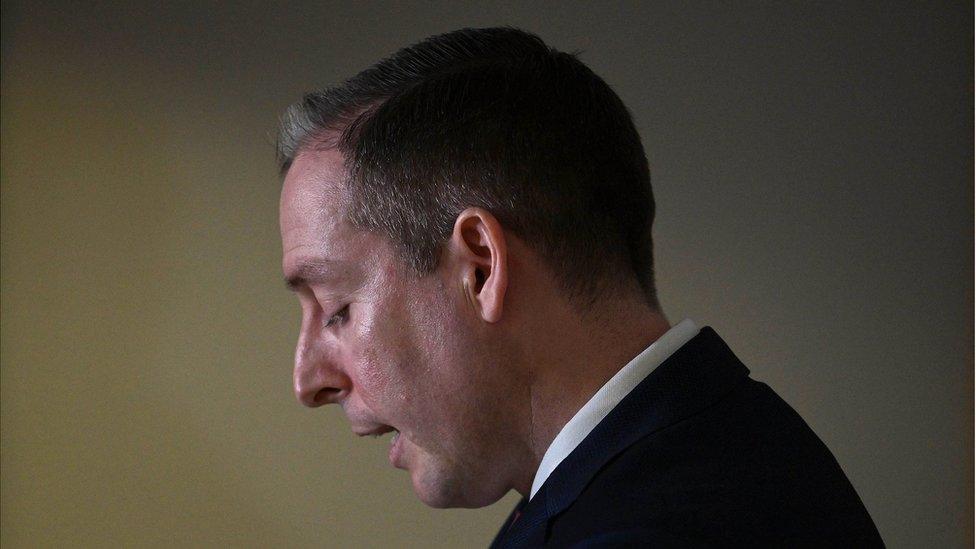Organ donation: Change to NI law passes final hurdle
- Published
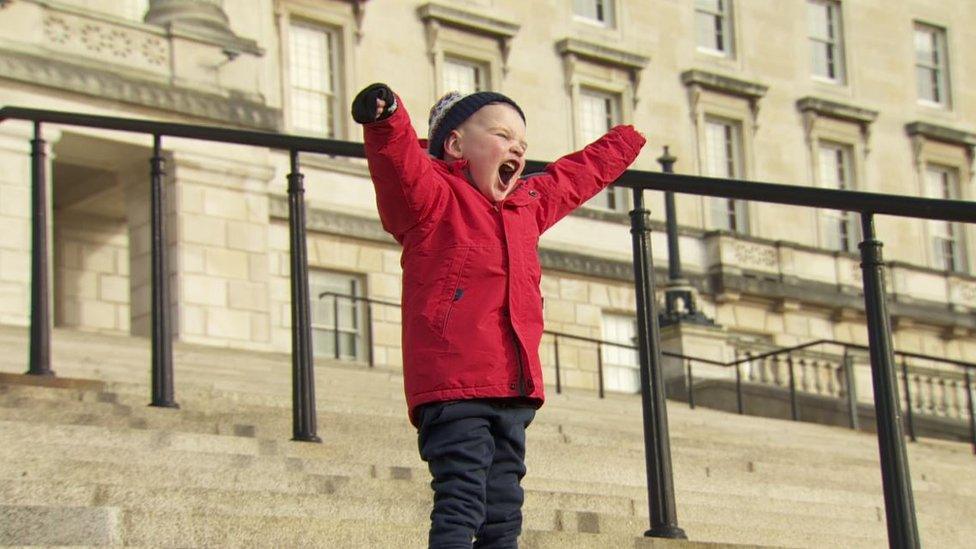
Dáithí MacGabhann on the steps of Stormont after the bill passed
Campaigners have welcomed the "life-saving" legislation to bring opt-out organ donation to Northern Ireland.
The legislation, which will align Northern Ireland with the rest of the UK, passed its final stage in the assembly on Tuesday.
It means people will automatically become donors unless they specifically state otherwise.
Máirtín MacGabhann, whose son Dáithí is waiting on a heart transplant, said it was "phenomenal".
The bill is to be known as 'Dáithí's Law' after the five-year-old whose family have campaigned for the law change.
Mr MacGabhann said it was an emotional day for them.
He told BBC NI's Evening Extra programme: "The most important thing, regardless of the name, is that it's passed its final stage and that life-saving legislation will go through."
Health Minister Robin Swann said the delay in the legislation "going live" would allow for awareness campaigns and to train health service staff involved.
There had been fears the change would be jeopardised with the collapse of the Northern Ireland Executive last week.
Opening today's debate, Mr Swann told members it was an "important moment" for future patients who will benefit from the change.
Speaking after the bill was put to an oral vote Speaker Alex Maskey said: "I think Dáithí has punched well above his weight to ensure this bill becomes law."
The statement was met with applause from assembly members.
The bill, which has been a long-awaited move at Stormont, will still need to receive royal assent before it can come into force.
Allow X content?
This article contains content provided by X. We ask for your permission before anything is loaded, as they may be using cookies and other technologies. You may want to read X’s cookie policy, external and privacy policy, external before accepting. To view this content choose ‘accept and continue’.
'Close to home'
Aimee Duncan's father died before he could see the law changes he campaigned for passed - but she and her brother could still benefit.
Her father had dilated cardiomyopathy and died waiting for a transplant in 2014.
She told Evening Extra their father had "campaigned as much as he could possibly, even being so sick".
"He tried his best. We were all hoping for it to come in when he would have had the benefit of it, obviously that didn't happen, but we're glad that it's coming in now."
She added: "It's very possible that both me and my brother could develop the disease and end up needing a heart transplant so it hits close to home for us."

Dáithí with Paul Givan and Michelle O'Neill in June 2021

Change a long time coming

This change to Northern Ireland's organ donation law has been a long time coming.
It was debated in the assembly as far back as 2012 when then Ulster Unionist assembly member Jo-Anne Dobson introduced a private member's bill on organ donation.
While that failed, the conversation picked up again in 2018 when a young Belfast boy called Dáithí MacGabhann burst on the scene and his family began campaigning for a soft opt-out law.
The opt-out legislation means it is assumed that everyone has agreed to donate their organs unless they have registered a decision not to.
The move brings Northern Ireland in line with the rest of the UK and campaigners say it's an example of what can be achieved when politics works in Northern Ireland.

Lives changed
Until June 2021, the Democratic Unionist Party (DUP) had blocked attempts to change the law.
Following talks between the DUP's Paul Givan who was then first minister, Mr Swann, who proposed the legislation, and campaigners, Mr Givan announced he had given approval for the legislation to proceed to the assembly.
Mr Swann said about 180 lives could be "changed" each year by overhauling the rules.
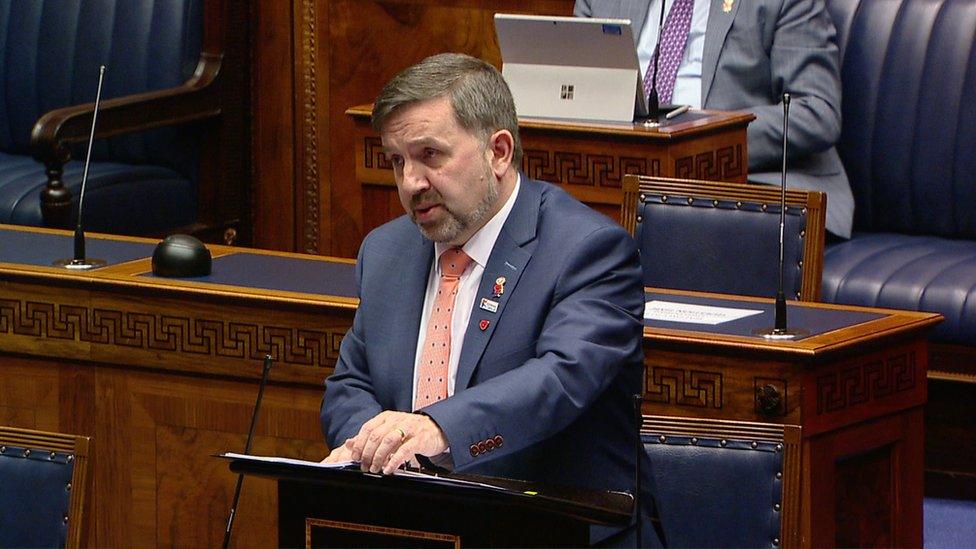
Robin Swann said he was relieved the bill had reached its final stages
Currently donation only proceeds in Northern Ireland if a person has given their express consent, usually by signing on to the NHS Organ Donor Register or by speaking to their family.
In the absence of that, the family is asked to decide on behalf of the patient.
Some of Northern Ireland's most senior clinicians had in the past warned that Northern Ireland was not ready for such a system.
The Department of Health said between 10 and 15 people die waiting for a transplant each year in Northern Ireland.
In 2020/21 there were about 115 people here on the waiting list.
Related topics
- Published19 September 2021
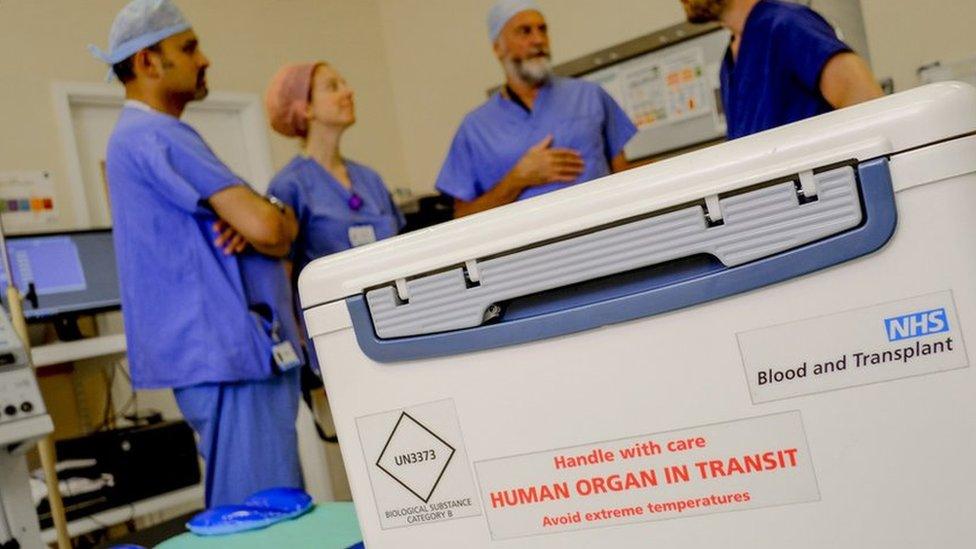
- Published25 June 2021
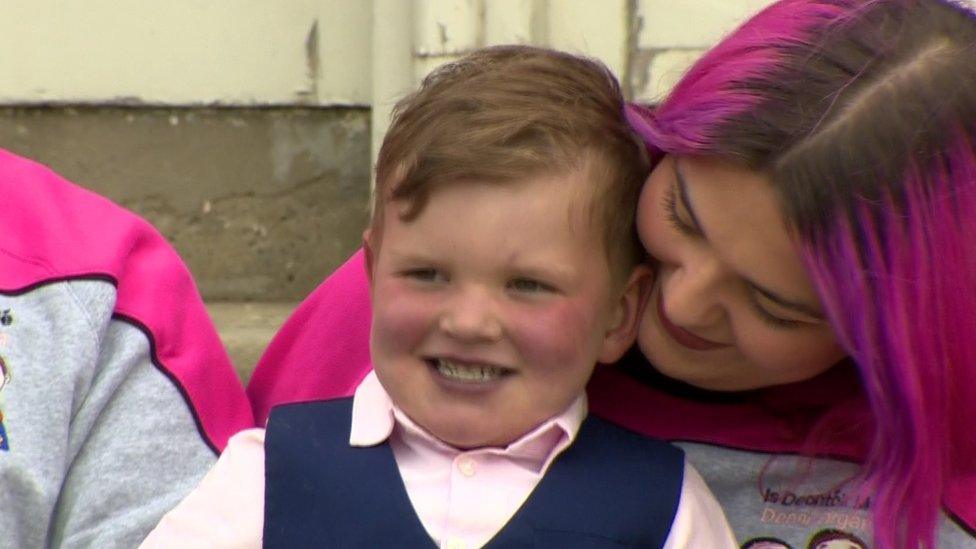
- Published24 June 2021
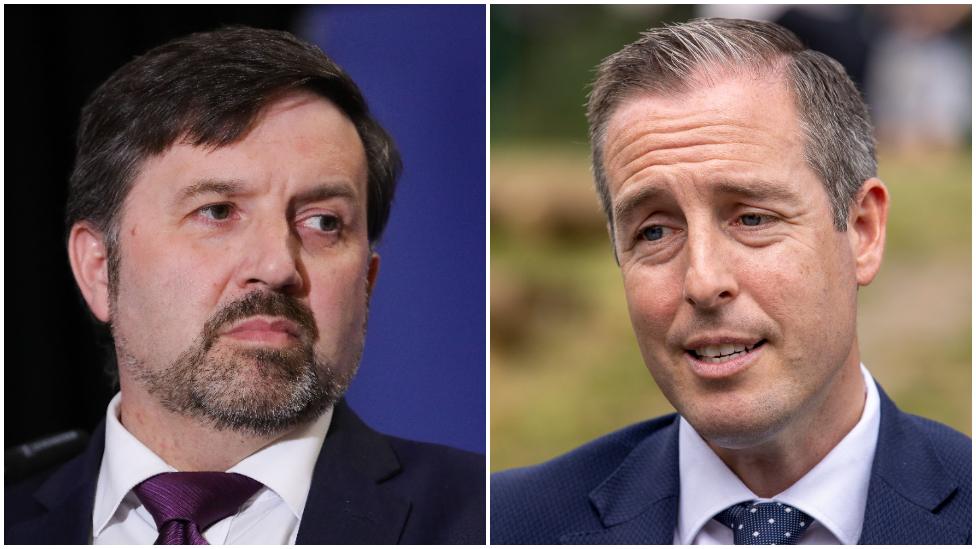
- Published3 February 2022
